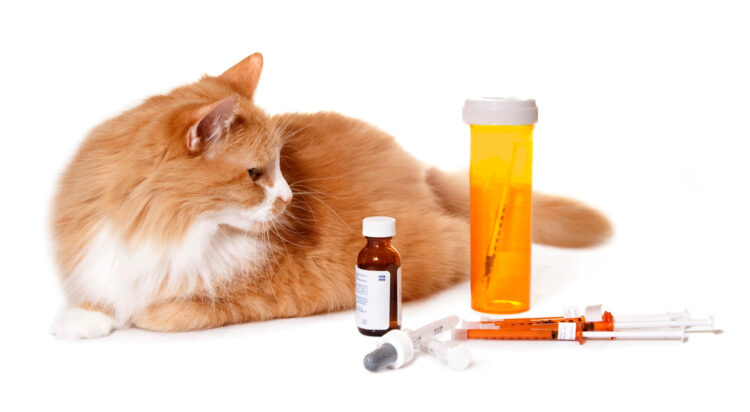
When it comes to giving medication, dog parents tend to have it easier than cat parents. Put the pill in a little bit of peanut butter or cheese, and dogs will think they’re getting a treat. Most cats are a different story. In this article, I’ll cover the various options to give medications to cats, but more importantly, I’m also looking at how giving medications to a reluctant cat affects the bond between cat and human.
Options for giving medications to cats
- Hide the pill in food or a treat. I don’t recommend adding medication to your cat’s meal. Many medications have a bitter taste, and if your cat catches a whiff of that taste in her meal, in her mind that may turn what may have been her favorite food into something to be avoided at all costs in the future. Instead, get a special food that your cat doesn’t routinely eat and hide the pill in a small “meatball.” Alternately, purchase one of the many available treats or pastes designed especially for medicating cats. Mixing a medication with food may not be appropriate for all drugs, so check with your veterinarian before using this method.
- Pop the pill directly into your cat’s mouth. If your cat is amenable to this approach, the best way to do this is place your non-dominant hand over the top of your cat’s head, with your fingers at the side of her mouth, and gently tilt her head back. With your dominant hand, gently pry her mouth open with your middle finger while holding the pill between your thumb and index finger, and pop the pill as far into the back of her mouth as you can. Always follow this with a moist treat or a bolus of water. Never dry pill a cat. Dry pilling can lead to dangerous esophageal erosions. Churu treats are great for this because your cat will associate being pilled with a treat.
- Use a pill gun. Pill guns may present less of a risk for you to get bitten in the process since you can use the pill gun to prey your cat’s mouth open and shoot the pill down the back of her throat. Make sure you follow with a wet treat or bolus of water.
Compounded medications
Many drugs can be compounded into a liquid formulation, into capsules, or as a gel or cream that is absorbed through the skin.
- Flavored liquid medications: Some cats are more amenable to liquid medications, especially if they’re flavored as chicken, fish, or beef. Unfortunately, not all bitter tasting medications can be masked by flavoring.
- Capsules: For some medications, compounding them into a capsule can disguise bitter taste. Capsules can even be flavored.
- Transdermal medications: Medications that can be compounded into a cream can be rubbed on the inside of your cat’s ear. However, not all medications will be as effective as the oral form of the same medication.
Not giving medication is also an option
In theory, all of these sound great. But there are some cats who simply won’t cooperate. And unless you’ve had one of these cats, you may not understand the emotional toll this can take on the cat’s caregiver.
If your cat simply needs a round of antibiotics, it may be worth pushing through the stress of administering medications. But if you’re looking at a cat who needs medication twice a day for conditions such as heart disease or hyperthyroidism, and runs from her human every time she sees the pill bottle come out, you will need to start to consider quality of life – both your cat’s, and yours.
I remember a friend with a 16-year-old hyperthyroid cat. She couldn’t pill the cat, he wouldn’t take pill pockets, and he refused to take the crushed pills or liquid form of the medication in his food. She tried the transdermal version, to no avail. She kept trying, for several weeks. The cat ran from her whenever he saw her coming toward him. He stopped sleeping with her. He stopped sitting next to her when she read or watched TV. The bond between the two of them was completely destroyed. My friend was stressed and upset, and so was her cat.
He was not a candidate for radioactive iodine treatment, nor was he a good candidate for surgery. Medication was the only viable option to control his hyperthyroidism. My friend was at the end of her rope: she felt like she was killing her cat because she couldn’t medicate him, and most of the time she felt like she didn’t even have a cat anymore since he wanted nothing to do with her.
If you find yourself in a similar situations, discuss all possible treatment options with your veterinarian. Know that making a treatment decision can also mean choosing not to treat.
In my friend’s case, she chose to stop giving her cat the medication. She understood what was going to happen physiologically to a hyperthyroid cat with no treatment. She accepted that her decision would most likely shorten her cat’s life. She closely monitored him for even subtle changes.
As hard as the decision was for her, after a few days of no pills, her cat slowly warmed to her again, and after a week, the old relationship was restored. She was lucky – not only did he forgive her fairly quickly, he lived for a few more weeks with good quality of life before she had to let him go.
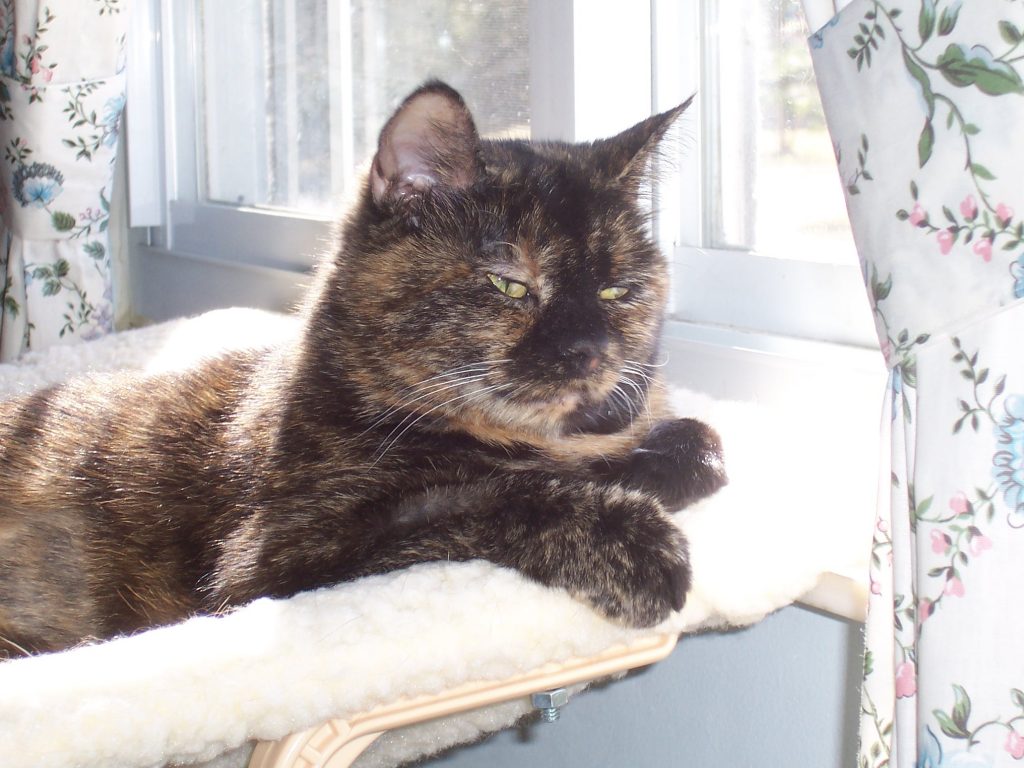
My personal experience with medicating “difficult” cats
I had to make this choice when I decided to stop treating Buckley’s restrictive cardiomyopathy. She was on multiple cardiac medications, and for several months, she happily took them with pill pockets. Once she started to refuse the pill pockets, the only way I could have gotten the meds into her was through force, something I would never consider for any of my cats.
Buckley was the kind of cat who, at all of seven pounds, required multiple veterinary assistants to restrain her to get anything done at the clinic. This was in the days before we knew about Gabapentin, a drug that can make vet visits so much less stressful for cats. I don’t think she ever had an exam that didn’t require at least mild sedation. There was no way I could have pilled her, nor would I have wanted to put a cat with heart disease through the twice daily stress of it. I also knew that she would come to dread contact with me, and I knew I couldn’t have handled that.
I made the choice to stop her heart medications knowing full well that it would shorten her already much too short life even further. But I also knew it was the right decision for her, and for me. She lived for another month after I stopped her medications, and except for the last few days of her life, her quality of life was good. If anything, our bond became deeper, knowing that our time together was limited.
If you have to make the choice to stop treatment for your cat, you will almost certainly shorten your cat’s life. But what you will gain, in my opinion, far outweighs what you will loose. You will get the loving relationship with your cat back.
Some of the links in this post are affiliate links. Purrs of Wisdom is a participant in the Amazon Services LLC Associates Program, an affiliate advertising program designed to provide a means for us to earn fees by linking to Amazon.com and affiliated sites. This means that if you decide to purchase through any of our links, we get a small commission. We only spread the word about products and services we’ve either used or would use ourselves.






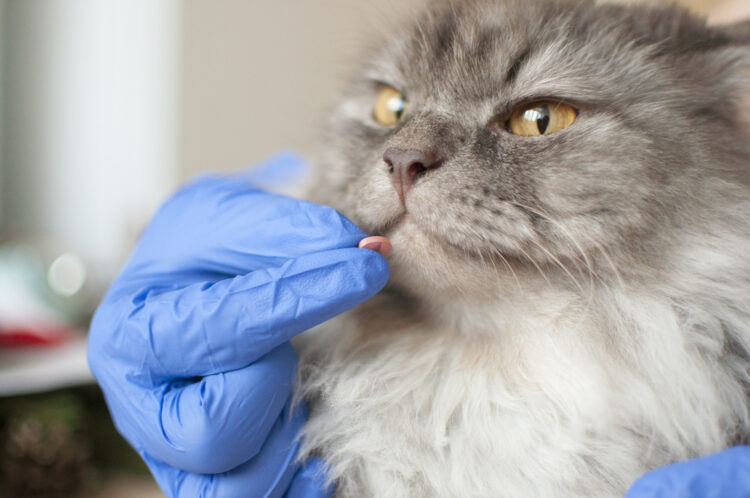
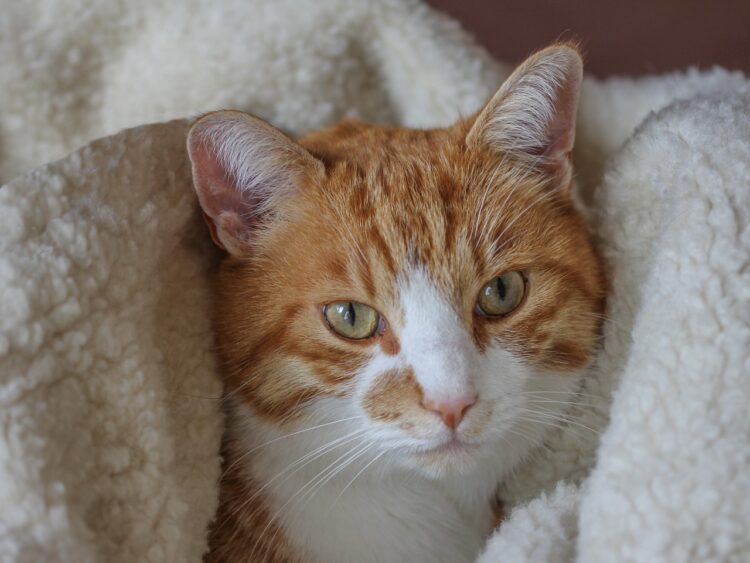
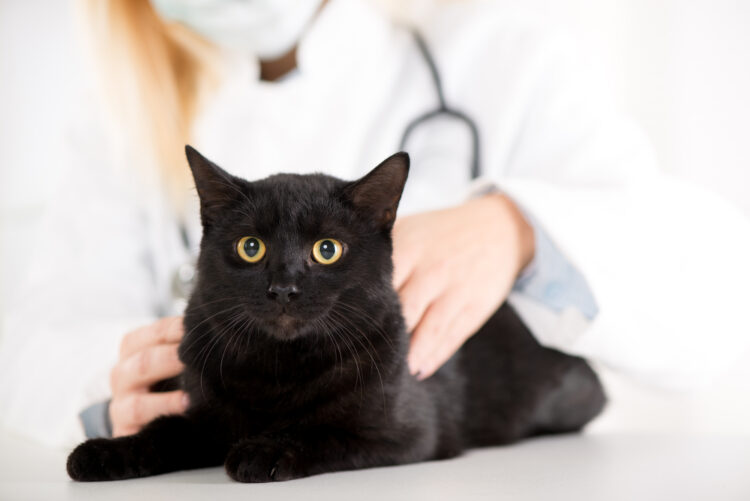
I put pills in empty capsules and coat them with butter which makes it easier to go down.
I am going through the gammet with meds on Tasha right now with her pancreatitis. Oral syringe meds, transdermal meds and even using pill pocket for a couple of her meds when she will take it. I feel so bad for her being on these meds for a montha and a half already. My poor little girl.
This article couldn’t have come at a better time. I have a cat who is extremely difficult to medicate and we just got back from the vet about twenty minutes ago. I’m going to try the options listed and if they don’t work, I know that I will be at peace if I choose not to medicate. Thank you Ingrid for wonderful article. You have given me freedom from guilt and peace of mind if the best option turns out to be not medicating.
I’m so glad this came at a purrfect time for you, Lynnette.
I am very sorry about your cat and your cat’s friend. With my cats, if possible, I always opt for injectable medications (especially with antibiotics), or use the syringe pill. But I know how to administer them. Medications can be truly a waste of money if your cat is reluctant to take them. I worked as a vet tech in a animal hopital. I always found useless to see our Vet to send home patients with their pet parent with oral medications while it was obvious these people had no experience on how to do it. I thought it would have been nice to give them a little bit of training before sending them home. No such thing in a busy practice.
Lulu and Kiki are the hardest to give pills too. I got where I just said let it go too. Luckily they are fairly healthy at this point. Pono was easy to give pills too. He loved Pill Pockets.